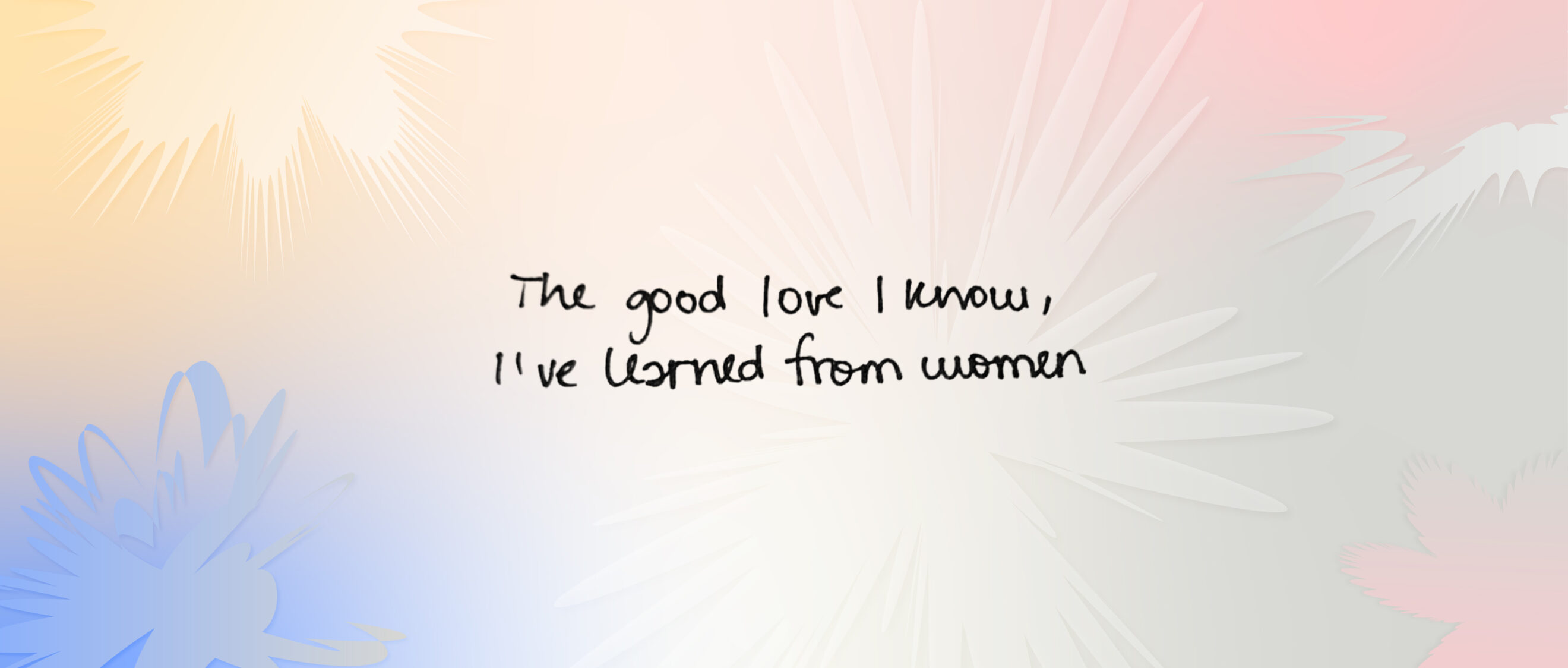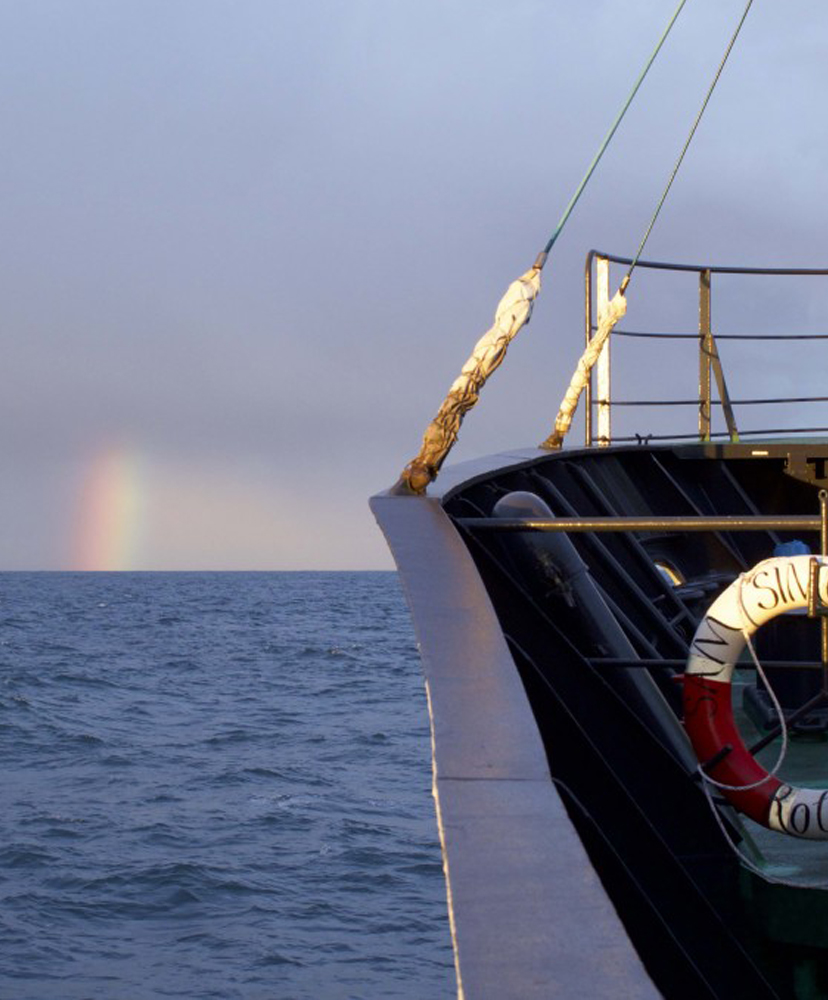The power of women’s love and community

Ane Santiago Quintas is a published poet and Copywriter at W+K Amsterdam. Having grown up in Barcelona, the wordsmith followed her passion for writing and made her way to the canals of Amsterdam – via Berlin and New York – where she now crafts and creates stories for brands.
Ane’s inner pursuit to make a difference is highlighted in her poems as she explores topics such as gender, bodies, and mental health. In 2020, Ane contributed to ‘The Intersection’: an evolving platform where perspectives of all women are welcome, heard and celebrated – writing about how women in the arts were dealing with the global crisis.
To observe International Women’s Day this year, here she shares her process, inspiration, and a poem on the power of women’s love and community.
Tell us about your journey – how did you fall in love with writing?
I first fell in love with reading. I was a proper nerd as a kid – my mom tells me teachers would tell me off for pulling books from under my desk and reading during class. Then at some point, I discovered that words were something I could use for myself, to find language for things I wasn’t even aware of.
Your poetry is so beautiful and very personal. Do you find it important that it mirrors your feelings and what’s happening in your life?
Thank you so much, that is very kind! The truth is I only really feel equipped to write about the things I’ve been through, especially in such an intimate way. That’s how poetry becomes a personal tool too, almost like a dissecting board for the things I’m feeling. I find honesty and generosity two of the most important elements of writing, and I don’t think I’d feel honest or generous if I wasn’t writing about what I know to be true. Plus, someone once said ‘what’s most personal is most universal’, so ultimately I feel like it makes it more interesting for the reader too.
What is your process when writing your poetry? And what are the main differences when you’re writing for work.
I think the main difference between writing for work and writing for myself is the fact that I don’t have a brief or a strategy I need to speak to. Work is also a bit more result-oriented, whereas I see poetry as a practice. What I’m doing doesn’t need to serve a purpose, it doesn’t need to be read by anyone. It’s for me. And if I’m lucky enough to find something I want to share, I’ll share. When you write for work you know the writing will have an audience.
How would you describe your writing style?
Poetic, simple – I hate overly complicated writing. If people need a university degree to understand your writing I think it’s not good, sue me – honest, bold, and feminine.
How did you build up the confidence to write in English? Are there certain topics you only find comfortable writing in Spanish, your native language?
I think living in English makes you process the world in English, if that makes sense. But it works the same way the other way around. I associate moments, people, and places with a language, and I’ll always use that to talk about it. I’m sure bilingual people will understand. If I’m writing a poem about my mum I’ll always write in Spanish.
How has your poetry evolved over the years?
I think it has grown with me! I want to think it’s more mature, it’s deeper and even more honest. My themes have remained pretty much the same though – love, women, and body politics.

Where and who do you draw inspiration from?
Everything! I feel like the way people talk about their feelings is very poetic. Also the way bilingual people mistranslate things. And obviously other authors. Mary Oliver. Andrea Gibson. Ocean Vuong. Joy Harjo. Maggie Nelson.
How do you handle writer’s block or moments of self-doubt in your writing?
I just get myself to work and try to make myself busy with that, versus destructive thoughts. But luckily I don’t feel as much debilitating self-doubt anymore. I think I’ve had amazing mentors and teams at work, and just by repetition I’ve built the confidence of knowing that if I keep at it, either by myself or after asking for help I’ll end up sorting it out.
You’ve written multiple poetry books. Do you have plans to write more or do something else with your words in the future?
I recently put together all my writing from last year, translated it to Spanish and English and I’m planning on making a little zine with it and self-publishing it. I don’t know what the future holds when it comes to publishing publishing, but if I have enough things to say of course I’d love to have more work out in the world.
How has being a woman influenced your writing?
As much as being a woman comes with lots of social setbacks, I’m really thankful I was allowed space to feel my feelings and talk about them since I was little, and I think that came from my education but also with growing up as a woman. I feel like men are socialized to lose access to that, and grow up with less tools and language, which I’ve always found a bit sad.
What does International Women’s Day mean to you?
It’s bittersweet – every year it makes me think of why we need it, but on the other hand it reminds me of how amazing women are and how lucky I am to be surrounded by the femmes in my life (+ the ones who came before us and paved the way).
Is there a piece of work you’ve done at W+K that you’d like to highlight in light of IWD?
Back in 2021, my partner Güney Soykan and I worked on ‘The Land of New Football’ and it was an incredible experience. You don’t always see female lead creatives on projects for male football tournaments, and I think this campaign really shows the benefits of mixing it up and bringing fresh POVs to the table. I thought giving me that opportunity was a feminist move from W+K, and I’m still incredibly proud of the result today (and cherish the memories from that whole process dearly!)
What’s one piece of advice you’d give to young female writers?
Say what you want to say. It’s not cheesy, it’s not too girly, it’s not too soppy, it doesn’t matter if it has been said a million times before. Stay committed to your practice and your voice. Find good references you can look up to and see yourself in. And be patient. It’s a skill that you build, not a gift that you’re born with.
The good love I know, I've learned from women.
The good love I know, I’ve learned from women.
The good care I know, I’ve learned from women.
How I want to treat others, I’ve learned from women.
How I want to be treated, I’ve learned from women.
How I want to be loved, I’ve learned from women.
How to love myself after learning how I didn’t want to be loved,
I’ve learned from women.
How to love what I was taught was difficult to love,
I’ve learned from women.
How to be tender, open, and graceful,
even on the days when grace seemed to be the last thing my hands could hold,
I’ve learned from women.
How to feel compassion. For myself and others.
I’ve learned because a woman had it for me or herself first.
How to listen. To really listen, with all of my body and not just my ears.
I’ve learned from women.
How to see others and what it feels like to truly feel seen
(and loved after being seen), I’ve learned from women.
How to be angry, unapologetic and loud, I’ve learned from women.
How to be sad, unapologetic and quiet, I’ve learned from women.
How to be happy, unapologetic and honest, I’ve learned from women.
How to move forward in alignment with myself, I’ve learned from women.
How to step back in alignment with myself, I’ve learned from women.
How to fight for what’s mine without leaving any corpses,
that sure as hell I’ve learned from women.
How to rest so I don’t become a corpse myself, I’ve learned from women.
How to listen to myself and my instinct as the absolute truth and the biggest authority in my life, I’m still learning from women.
The idea of power I believe in and have defined for myself, I’ve learned from women.
The idea of success I believe in and have defined for myself, I’ve learned from women.
Soft, tender, honest but never cruel.
Always vulnerable and brave.
The bridge that holds me,
the hand that feeds me.
Thank you for teaching me.
— by Ane Santiago Quintas
